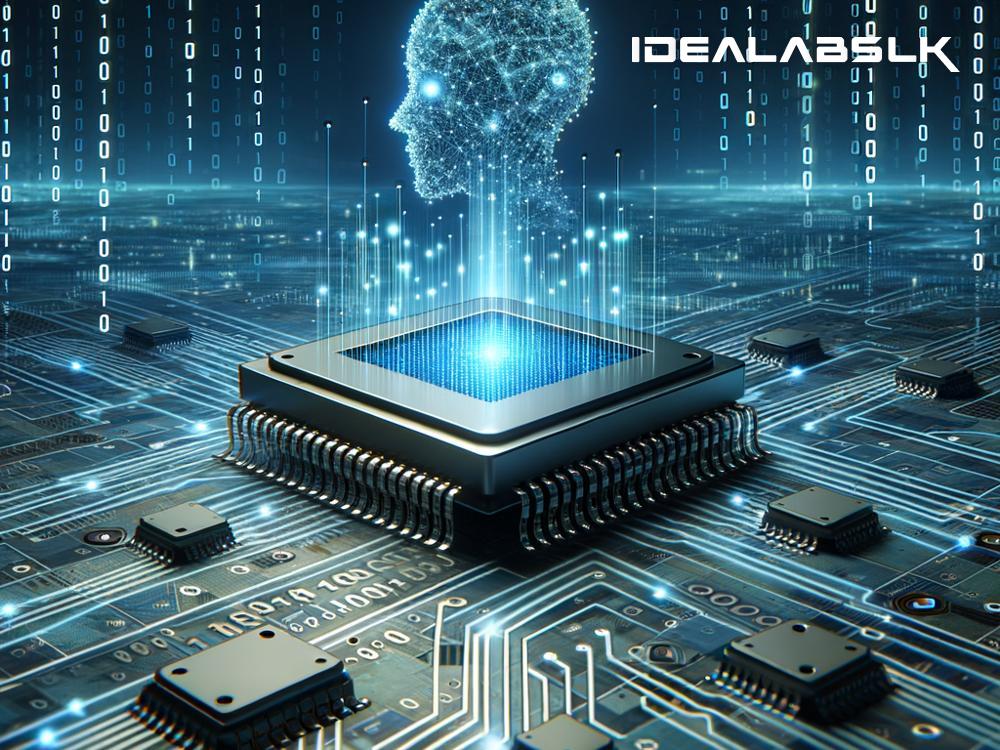How AI Chipsets Influence the Speed of Data Processing: Explaining in Simple Terms
In today's fast-moving world, the role of technology is undeniable. We're living in an era where everything from our phones to cars is getting smarter, thanks to artificial intelligence (AI). But have you ever wondered what powers these intelligent systems, making them so swift and efficient? The secret lies in a special kind of computer brain known as the AI chipset. In this article, we'll dive into the fascinating world of AI chipsets and explore how they're revolutionizing the speed of data processing, making our gadgets smarter and our lives easier, all explained in simple English.
What is an AI Chipset?
An AI chipset is like a super-efficient brain for gadgets. Just like our brain helps us think, decide, and perform tasks quickly, an AI chipset enables devices to process information, make decisions, and learn from experiences rapidly. These chipsets are designed specifically to carry out AI-related tasks such as recognizing speech, translating languages instantly, or even driving a car without human help. The difference between these chipsets and regular computer chips is like comparing a sports car to a bicycle in terms of speed and performance.
The Role of AI Chipsets in Speeding Up Data Processing
-
Designed for Speed: Imagine you have a task that normally takes an hour to complete. Now, if you had ten people working on it simultaneously, it would get done much quicker, right? AI chipsets work on a similar principle. They are designed to handle many tasks at once, making them exceptionally fast at processing huge amounts of data. This is known as parallel processing, and it's one of the reasons why AI applications like voice assistants or facial recognition are so quick and smooth.
-
Energy Efficiency: Speed is not just about how fast something can go; it's also about how long it can maintain that speed without needing a break. AI chipsets are like marathon runners who know exactly how to pace themselves. They process data quickly while using minimal energy, which means your phone or laptop can run intelligent applications without draining the battery quickly.
-
Specialized Tasks: Each AI chipset is like a master chef specialized in a particular type of cuisine. Just as a sushi chef excels in making sushi, AI chipsets are often optimized for specific AI tasks, such as understanding human speech or analyzing images. This specialization ensures that they can perform these tasks with incredible speed and accuracy, much more so than a general-purpose chipset could.
-
Learning and Adapting: One of the most remarkable things about AI chipsets is their ability to learn from data and improve over time. This is akin to how practice makes us better at certain skills. As these chipsets process more data, they become faster and more efficient at it, further boosting the speed of data processing. This capability is at the heart of machine learning and is what allows AI applications to become smarter over time.
The Impact on Our Daily Lives
The influence of AI chipsets on data processing speed is not just a technical achievement; it has real-world implications that touch almost every aspect of our lives. Faster data processing means that the gadgets we rely on daily, from smartphones to smart home devices, are becoming more responsive, efficient, and intelligent. This leads to improved user experiences, whether it's getting instant replies from a virtual assistant, quickly recognizing faces in photos, or enjoying smoother, smarter gameplay.
Moreover, in professional and industrial contexts, the improved speed and efficiency of AI chipsets can lead to significant advancements. For instance, doctors can use AI-powered tools to diagnose diseases more quickly and accurately, while businesses can analyze customer data in real-time to provide better services.
Looking Ahead
As technology continues to evolve, the role of AI chipsets in our lives is set to become even more pivotal. With ongoing advancements, these chipsets will become faster, smarter, and more energy-efficient, paving the way for more innovative applications and devices. The future is bright, and it's exciting to think about the endless possibilities that faster data processing speeds will unlock.
In conclusion, AI chipsets are at the heart of the technological revolution, making devices smarter and more efficient by dramatically speeding up data processing. Their impact is profound, touching everything from the gadgets in our pockets to the way businesses operate and beyond. As we continue to push the boundaries of what's possible with AI, the role of these specialized chipsets will only grow, promising a future where technology seamlessly integrates into every aspect of our lives, making it smarter, faster, and more intuitive.

